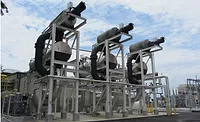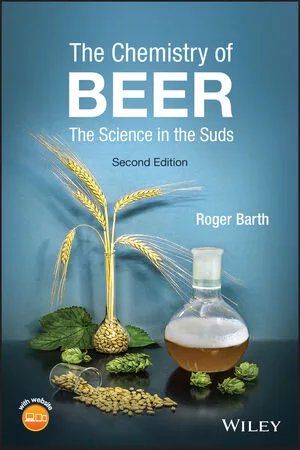Top beverage companies striving, achieving zero-waste goals
Water management key to reducing waste in manufacturing plants
With mainstream media reports detailing questions about the sustainability of the planet, consumer interest in these measures is gaining steam. “The Sustainability Imperative,” an Oct. 12 global insight post from New York-based Nielsen, notes that more consumers are adopting sustainable behaviors and expect the same measures from corporations.
The market research firm reported that 66 percent of global respondents are willing to pay more for products with 50 percent citing key sustainability factors — natural/organic ingredients (69 percent), company being environmentally friendly (58 percent) and commitment to social value (58 percent) — as purchasing drivers.
More beverage companies are recognizing the value of adopting more sustainable, environmentally friendly practices and are exploring new ways to integrate these into their operations. One of those practices is integrating operations that allow production facilities to reduce their waste output to zero.
Hamilton, Bermuda-based Bacardi Ltd., for example, instituted its Good Spirited global sustainability initiative, a campaign that spans across all of the company’s brands and operations to reach its company-wide vision of a net-zero impact on the environment. Earlier this year, it announced that its new distillery at Laverstoke Mill, which produces Bombay Sapphire, uses its leftover exotic botanicals as renewable energy. It accomplished this by utilizing a funnel shoot from the infusion room to collect the used gin botanicals in the bed of a small utility truck, enabling the organic matter to be transported in a 30-second drive to the biomass boiler, which burns any suitable organic matter, the company says.
The company also has been recycling water at its production facility in Puerto Rico since 2014. After cleaning the barrels used to age its rum, the bathwater is reused to spray down and reduce the temperatures of the cooling towers used in the rum distillation process. “We recycle about 15,000 gallons of water per day,” said Magaly Feliciano, environmental health and safety manager for Bacardi in Puerto Rico, in a statement. “That’s enough to supply the daily water needs of 40 families of four.”
Other beverage-makers already are celebrating achieving their zero-waste goals. Cincinnati-based Sunny Delight Beverages Co. marked its 5th anniversary of sustaining zero waste to landfills. “Achieving zero waste to landfill was difficult, but even more challenging is maintaining zero waste to landfill,” said Ellen Iobst, chief sustainability officer and senior vice president of supply chain, in a statement. “This accomplishment requires creativity, innovation and tenacity from people who are passionate about environmental stewardship. We are proud of our workforce’s efforts to maximize our impact while minimizing our footprint.”
Motivation and application
As beverage manufacturers look to grow their operations, they are finding that zero-waste goals might be applicable to their business models.
Lloyd Snyder, senior vice president for Woodard & Curran, Portland, Maine, notes that zero-waste processes can reap financial benefits. “Plants are seeing increased cost for waste disposal and zero waste can reduce operational costs,” he says.
External stakeholders and community groups also are voicing their desire for manufacturers to reduce impact on local areas and infrastructure. However, pressing environmental challenges — like the California drought — also are motivating factors. Because of this, wastewater management is crucial to pursuing and achieving zero waste.
“Beverage plants should focus on processes that discharge their waste to drains,” Snyder explains.
This trend could have a future effect on beverage plants looking to obtain zero waste. “I think as potable water supplies come under pressure due to population growth and droughts, beverage plants will come under pressure to maximize their use of water and reduce waste streams to zero,” he adds. “Water reclamation and water reuse will become the norm and incoming potable water will be only used for product water.”
But before a beverage facility looks to employ zero-waste practices, an understanding of waste and waste streams needs to be examined.
“Water and waste minimization must be actively implemented to reduce volume and load of the waste streams,” Snyder explains. “Often processes like tank cleanings — method and frequency — affect the large volumes of waste. Reducing changeovers makes the plant more efficient from a capital utilization stand point and a waste stand point.”
Depending on the aggressive nature of waste minimization and capital investments, a plant can achieve a zero-waste facility goal within three to five years, Snyder adds.
However, zero waste is not as common for a facility to pursue in comparison to Leadership in Energy & Environmental Design (LEED) certification. “LEED is often pursued more often because it is a more achievable goal than zero waste,” Snyder says.
Looking for a reprint of this article?
From high-res PDFs to custom plaques, order your copy today!







